
THE MEDIA MAELSTROM
Edgar Allan Poe's short story “A Descent into the Maelstrom” provided McLuhan with an important metaphor for describing contemporary culture and technology. How is culture like an inescapable vortex? In what sense are we swept away by the effects of technological innovations? How does the maelstrom metaphor relate to recent theories concerning chaos and complexity?

ESCAPING THE MAELSTROM
We often ignore our environments, allowing them to fade into the background and become invisible. How did McLuhan learn to pay attention to the invisible environment of communication, culture and technology? How successful was he in teaching others to be aware of their media environment? The sailor in Poe’s story escapes from the maelstrom by using his powers of observation, recognizing an orderly pattern emerging from the turmoil of the whirlpool. Can we do the same? McLuhan developed his new science of media ecology to escape the maelstrom. His four Laws of Media are tools to recognize the pattern within the vortex. He argued that this tetrad could be used to analyze any technology or artifact, and could also be applied to ideas, institutions, social movements or any other product of the human mind. McLuhan's Laws of Media are the four questions that must be asked to understand the effects that will inevitably result from a new medium. They are:
1. What human trait or experience does the medium enhance? What is the intended function of the medium or technology? What does it improve or make more efficient? Does it extend part of the human body? One or more of the senses? Does it extend an aspect of the human mind, such as memory? Does it amplify some human capability or augment some form of human action? Does it extend the individual, the group or society?
2. What pre-existing technology, method, system, or medium does this medium obsolesce? What older technology does the new medium replace? What does it render unnecessary? What procedures does it short-circuit or bypass? What happens to the old medium that is rendered obsolescent? Does it disappear entirely, become an art object, or find a new niche?
3. What technology, method, system or medium that was previously obsolesced or abandoned does this medium retrieve? What archaic elements are made relevant again? What previously marginalized or repressed ideas, practices or artifacts are brought to the fore? What aspects of the prehistoric, ancient, medieval or early modern world are revived?
4. When fully utilized or pushed to its extreme, what will the medium reverse into? What effects will the medium create that are opposite to what was originally intended? What are the contradictions inherent in the technology? What is the ecological impact?
----
EDGAR POE'S TRADITION
Poe is much in need of an evaluation which will relate him to the
American culture and politics of his day, for Poe was the only
American man of letters in the nineteenth century who displayed,
unequivocally, a mode of awareness at once American and cosmopolitan.
That is to say, Poe felt his time, but none the less wrote with a
sense of the past in his bones. He objectified the pathetic cleavages
and pressures of the age in a wholly unprovincial way. When he died in
1849 there was no writer in England or America who was not, in
comparison with him, exploiting a merely local awareness and a merely
local response to the psychological tensions of the time. However, the
organization of his sensibility, with its dislocations and
inadequacies, is never derivative but authentic and first-hand. Thus
he and Byron are in the same tradition, but he is not Byronic.
The problem here is not to evalue Poe's work in relation to the often
vital, but always provincial, New England products. But it is evident
that Poe's writing had a fitness, an immediacy of impact, and a
relevance to European consciousness wholly unlike that of Emerson,
Hawthorne, or even Henry James. Indeed, everything about Poe
(including his strikingly symbolic private life) was strictly relevant
to the problems of his age. And this faculty for relevance confers on
him that air of infallible esthetic efficiency which makes integral
the man and the writer. He has no loose ends. He left no unfinished
experiments. He uttered himself.
The erudition of Lowell and Longfellow was not his, but neither did he
partake of their vagueness and uneasy professorial eclecticism. They
read and ruminated while he was seizing with the gusto of pre-ordained
certitude on facts, symbols, images, and ideas which became the
vehicles of his sensibility. However, Poe's equipment was far from
flimsy. He read widely, and with the intensity of the craftsman.
Moreover, he had the craftsman's contempt for verbiage masquerading as
expression. Poe's literary criticism was the best of his time in
America, simply because his own artistic discipline had given him an
infallible eye and ear for whatever had been born of a sincere and
vital sensibility in immediate contact with its own age. Mr. Hervey
Allen says that time has confirmed all of Poe's judgements save his
condemnation of Carlyle. Nothing, however, could be more to Poe's
credit (and in this one can see the nature of the superiority he
enjoyed over Emerson) than his easy penetration into the provincial
confusions and over-emphasis of the great Calvinistic mystagogue.
Beside Poe, Emerson is in many ways a mere local sage. For Poe's tones
and accents are those of a man conscious of possessing a European and
cosmopolitan heritage. Poe cannot be understood apart from the great
Byronic tradition (which extends at least back to Cervantes) of the
aristocratic rebel fighting for human values in a sub-human chaos of
indiscriminate appetite. It is no mere accident that Poe, like Byron,
won a European recognition denied to such a great but autochthonous
sensibility as Wordsworth's.
I propose here to suggest how Poe's achievements are to be understood
in the light of a great tradition of life and letters which he derived
from the South of his day. This tradition has been a continuous force
in European law, letters, and politics from the time of the Greek
sophists. It is most conveniently referred to as the Ciceronian ideal,
since Cicero gave it to St. Augustine and St. Jerome, who in turn saw
to it that it has never ceased to influence Western society. The
Ciceronian ideal as expressed in the DE ORATORE or in St. Augustine's
DE DOCTRINA CHRISTIANA is the ideal of rational man reaching his
noblest attainment in the expression of an eloquent wisdom. Necessary
steps in the attainment of this ideal are careful drill in the poets
followed by a program of encyclopedic scope directed to the forensic
end of political power. Thus, the DOCTUS ORATOR is, explicitly,
Cicero's sophistic version of Plato's philosopher-king. This ideal
became the basis for hundreds of manuals written by eloquent scholars
for the education of monarchs from the fifth century, through John of
Salisbury and Vincent of Beauvais, to the famous treatises of Erasmus
and Castiglione. (THE PRINCE of Machiavelli stems from a totally
distinct tradition of scholastic speculation, though it still tends to
be confused with the Ciceronian tradition.)
The encyclopedic ideal of "Renaissance man" was consciously and
explicitly that of Cicero's orator, whether exemplified in a
fourteenth-century Italian humanist, or a sixteenth-century Spenser,
Sidney, or in Shakespeare's HAMLET or HENRY V. This meant that the new
gentry were educated along the aristocratic-forensic lines of Cicero's
DE ORATORE, as anybody can determine from considering the ingredients
of gentlemanly education in any European country of the sixteenth
century. So far as America is concerned, this was a fact of decisive
importance, since Virginia, and the South in general, was to receive
the permanent stamp of this Ciceronian ideal. This is the highly
practical and gentlemanly ideal in which knowledge and action are
subordinated to a political good. It is thus no accident that the
creative political figures of American life have been moulded in the
South. Whether one considers Jefferson or Lincoln, one is confronted
with a mind aristocratic, legalistic, encyclopedic, forensic,
habitually expressing itself in the mode of an eloquent wisdom. This
is a fact of the utmost relevance to the understanding of Poe, as we
shall see.
To focus the facts about Poe, it is necessary to understand a
tradition wholly alien and repugnant to him, namely that of New
England. The reader of Mr. Perry Miller's THE NEW ENGLAND MIND will
know what is meant when it is said that New England is in the
scholastic tradition, and profoundly opposed to "humanism." Briefly,
the theocratic founders of Harvard and rulers of New England were
Calvinist divines, fully trained in the speculative theology which had
arisen for the first time in the twelfth century - the product of that
dialectical method in theology which is rightly associated with Peter
Abelard. Unlike Luther and many English Protestants, Calvin and his
followers were schoolmen, opposed to the old theology of the Fathers
which Erasmus and the humanist-Ciceronians had brought back to general
attention after the continuous predominance of scholastic theology
since the twelfth century. To the humanists nobody could be a true
interpreter of Scripture, a true exponent of the PHILOSOPHI CHRISTI,
who had not had a full classical training. So Catholic and Protestant
schoolmen alike, were, for these men, the “barbarians,” the "Goths of
the Sorbonne," corrupting with “modernistic" trash (the schoolmen were
called MODERNI from the first) the eloquent piety and wisdom of the
Fathers. (The Fathers were called the "ancients" or ANTIQUI THEOLOGI.)
[1]
It need hardly be said that this alignment of traditions throws a
startlingly vivid light on the relations between learning and religion
in the sixteenth century, which subsequent stages of the original
quarrel have obscured. In fact, it means nothing less than this: that
from Petrarch to Ramus the violent quarrels about the relative claim
of different sorts of learning originated in the conflicting claims of
grammar and dialectics to be the exclusive method in theology. The
sectarian fogs which, from the beginning, involved the basic
intellectual struggles of the Renaissance, have likewise prevented
American historians from seeing clearly the most important
intellectual fact about America - the fact that, geographically
separated for the first time in their age-old struggle, there exist,
profoundly entrenched in this country, the two radically opposed
intellectual traditions which have been warring since Socrates turned
dialectics against the rhetoric of his Sophist teachers. Socrates
turned from rhetoric to dialectics, from forensics to speculation and
definition, raising the issue which pitted Plato and Aristotle against
their formidable rival Isocrates, and which pitted the forensic Cicero
against Carneades and the Stoics. The same quarrel as to whether
grammar and rhetoric, on the one hand, or dialectics, on the other,
should have precedence in organizing the hierarchy of knowledge, is
the key to an understanding of the Renaissance from the twelfth to the
seventeenth centuries. Just when the quarrel, both within the Catholic
Church and outside it, was reaching its term, representatives of both
parties in the quarrel migrated to America. The schoolmen went to New
England, the quasi-humanist gentry to Virginia. (At this time,
moreover, the Anglican Church had, with the accession of the patristic
and Ciceronian James I, suddenly thrown its weight against the
Calvinist party, in favor of the eloquent divines of humanist bent.
That is why Andrewes and Donne were able to get royal approval for
their patristic rhetoric and grammatical theology. Anyhow, this fact
contributed indirectly to directing Southern education along classical-
Ciceronian lines.)
Harvard, then, originated as a little Sorbonne, where in 1650 the
scholastic methods of Ockham and Calvin, as streamlined by Petrus
Ramus, were the staple of education. Logic and dialectics were the
basis of theological method, as of everything else at Harvard. Here
rhetoric was taught, not for eloquence, but in order to teach the
young seminarian how to rub off the cosmetic tropes of Scripture
before going to work on the doctrine with dialectical dichotomies.
Ramus taught a utilitarian logic for which he made the same claims as
pragmatists do for "scientific method." In fact, Peirce, James, and
Dewey could never have been heard of had they not been nurtured in the
Speculative tradition of the scholastic theologians Calvin and Ramus.
[2]
This helps greatly to explain a most puzzling fact - namely, that New
Englanders have felt a perennial congeniality for one strand of French
culture. (This is also true of Scotsmen, and for the same reasons.)
French universities, that is to say, saw to it that part of France
remained scholastic. And Descartes is unthinkable without the
Schoolmen (especially the Ockhamists), as Pierre Duhem and Etienne
Gilson have demonstrated. Thus, not in spite of Calvinism but because
of it, the New Englander finds himself able to communicate with part
of European culture. It is not otherwise that we can account for that
rich cross-fertilization of seemingly distinct cultures, which
occurred when Henry James and T. S. Eliot came into contact with
France. Superficially, however, there could be no greater anomaly than
that of two provincial Puritans returning English letters to the main
channels of European culture.
But what of Poe's affinities with France? If the Calvinistic,
scholastic, and academic New Englander has natural roots in the
Cartesian traditions of academic France, so has the Ciceronian South
maintained relations with Ciceronian and encyclopedist France. For one
main current of French letters in the seventeenth century is that of
Cicero - an eloquent wisdom politically inspired, and based on
universal learning. Whether it is Bossuet and Corneille or Voltaire
and Diderot, one has to deal with the forensic, political eloquence of
a great tradition whose well-defined roots can easily be examined in
the schools of that age. Thus, the American South naturally finds a
congenial milieu in France of the eighteenth century - the France of
the encyclopedists who rebelled against Descartes. These men
proclaimed the Ciceronian origins of their aristocratic republicanism
in the very name they bear. And Erasmus, More, Bacon, Swift,
Bolingbroke, Burke, or Voltaire would have alike approved the
linguistic and forensic program which Jefferson drew up for his
university.
Poe must now be focussed in relation to this dichotomy of European and
American culture. Thus, merely to mention THE AUTOCRAT AT THE
BREAKFAST TABLE is to summon up a type of man and a type of writing
which are antithetical to Poe's mode of being. The New England ETHOS
naturally finds its highest level of expression in the scholastic man,
and the result is that the New England professor is autocratic. There
is no social life co-extensive with him, nor one able to embody and
criticise his thought and actions. Brought up amidst this social
nudity and pedagogical earnestness, T. S. Eliot confronted the
situation directly in "Tradition and the Individual Talent." Here it
was that he exploded the heresy of "self-expression," of "message,"
and of artistic isolation and futility, which had found such congenial
soil in New England. On the other hand, vividly aware of the defects
of his immediate social environment, Poe is yet naturally and
unaffectedly cosmopolitan. Because he understood profoundly the nature
of his artistic dependence on that society, he was its vigorous and
unremitting critic, scrutinizing its dress, its manners, its reading,
its furniture and science; and he utilized these things as the basic
materials of his prose. For he is the master of a prose whose lucidity
and resilience are unmistakably owing to a society in which good talk
is common.
All his life Poe fought with eloquence and versatility of learning to
maintain serious standards in current literature, to extend the scope
of American letters, and to banish parochial habits of mind. To the
end he maintained the need and practicality of a critical review which
would transform the taste of society at large. Thus, unlike the New
England academicians and recluses, Poe was the man of letters in
society. He was not professorial but professional - in the forensic
tradition of Dr. Johnson and Macaulay.
This is not the place in which to proceed to a careful study of Poe's
writings in relation to his tradition. However, the kind of importance
which essentially social and political problems have in an
understanding of his work must be indicated briefly. For it was from
the experience of the Virginia of his day that Poe was able to project
those symbols of alienation and inner conflict which won the immediate
assent of Baudelaire himself. (Baudelaire was also an aristocratic
dandy, and his devotion to Silver age and patristic rhetoric has
implications which relate him decisively to the Ciceronian tradition
which has been described.) That Baudelaire should have hailed Poe as
he did has a meaning totally unlike that which belongs to the
recognition of Emerson by Carlyle. To appreciate the full significance
of this event remained for us to discover today; for English poetry
had to wait another seventy years for T. S. Eliot finally to
incorporate Baudelaire's sensibility and eloquence. No more striking
testimony could be asked for Poe's central location in European
tradition. And yet he won that place by the uncompromising integrity
with which he dealt with his local American experience. While the New
England dons primly turned the pages of Plato and Buddha beside a tea-
cozy, and while Browning and Tennyson were creating a parochial fog
for the English mind to relax in, Poe never lost contact with the
terrible pathos of his time. Coevally with Baudelaire, and long before
Conrad and Eliot, he explored the heart of darkness.
Within this perspective of deep-lying cultural dichotomy it becomes
possible for the critic to show that "the heart of darkness" for
Byron, Baudelaire, and Poe is quite distinct from what it is for
Hawthorne and Melville. Evil is a fact, perhaps the most important
fact, in the New England consciousness. But the evil which Poe and
Baudelaire experienced had very different roots from that of the
North. It is the evil which led Byron to evoke endless Satanic heroes
as objective correlatives in his poems, the evil, not of Calvinistic
depravity, but of the split-man and the split-civilization. The
psychological exploration of uneasy conscience as carried on by
Hawthorne or Melville could only regain contact with European
consciousness after James and Eliot had visited the founts of French
culture. But Poe lived in a community which had never breached its
relations with the original traditions of its culture. And let us
remember that these traditions were, long before the sixteenth
century, strongly antipathetic to those which were brought to New
England.
Considering this cultural dichotomy now in a new perspective, it is
possible to approach even closer to a solution of a major Poe problem:
Why is Poe essentially preoccupied with symbols and situations of
horror and alienation? Or it can be put this way: Why did the split
consciousness of an aristocratic-seigneurial society express itself in
symbols of Satanism, sadistic horror, of fear, violence and
desolation? Byron, Baudelaire, and Poe are here together in a literary
tradition which stretches back at least to Cervantes, and which is
much alive today, even in such degenerate forms as crime fiction with
its, significantly, dandified sleuths.
Without considering Corneille and Racine, the matter is obvious enough
in Milton's Satan, and even more in the cult of literary diabolism
associated with that Satan in the eighteenth and nineteenth centuries.
The issues are strikingly defined by Marvell in his HORATIAN ODE,
where he explains how the aristocratic ideals of noble being have been
swept aside by the vulgar Cromwell, whose genius is for destructive
action rather than for harmony of thought and feeling. Tradesman
Richardson offers an obvious incarnation of the same conflict in his
CLARISSA HARLOWE. This time it is from the "Cromwellian" point of
view. Thus Lovelace, the prototype of the aristocratic villain,
provides us with the pattern of the Byronic hero and the villain of
Victorian melodrama, to say nothing of Dupin, Sherlock Holmes, Lord
Peter Wimsey, Rhett Butler, and the Hollywood pantheon. The
characteristic pose is that of the man "beautiful but damned," the man
who scorns the ignoble conventions and petty, calculating bustle of
commercial society. This man is wholly alienated from society, on one
hand, and feared and admired by the commercial members of society, on
the other hand. The entire conflict is perfectly dramatized in the
relations between Edgar Poe and his guardian, John Allan. John Allan
secretly admired Poe quite as much as Richardson revered Lovelace.
Allan despised himself in the presence of Poe, and Poe in turn pitied
and scorned him.
A figure of great interest, who can best be seen in relation to what
has here been said of Poe, is Whitman. Many people have mistaken him
for another variety of Thoreau or the noble savage of the frontier.
Actually, as Sidney Lanier very clearly saw and explained long ago,
Whitman is an inverted Byronic dandy. His tradition is that of the
aristocratic and political South. He has nothing in common with the
dons of New England. The inverted Byronic dandyism of Whitman is
evident enough as soon as one applies the cipher of reversal. Put
uncritical embrace of all social facts in place of fastidious scorn
and withdrawal. Put pose of noble and omnivorous yokel for pose of
satiated estheticism of the worldling. Put tones of "barbaric yawp
over the roofs of the world" for the elegant scorn of a Byronic hero
excoriating mankind from a midnight crag. Put boisterous adolescent
athleticism for the world-weary FLANEUR, and the pattern is complete.
That is why Whitman was so eagerly accepted by the esthetes who had
only to make one simple adjustment - that of reversal - in order to
fraternize with him. Perhaps this also explains his very considerable
failure to convince us of his own sincerity. He is FAUX NAIF. He is
often like a man flapping his arms and stamping his feet to restore
circulation. More important than this implied valuation is the fact
that America's political poet belongs to the aristocratic Southern
tradition, a representative of the Ciceronian and forensic ideal of an
eloquent wisdom.
Without at present pursuing this theme further, it can be maintained
that whereas Poe's art is political, in that its vehicle and dramatic
organization concern those symbols which express a basic split in
society and personality, the art of Hawthorne, Melville, and James is
wholly non-political in its concern with the lacerations of the merely
individual conscience - even when this conscience is typical of a
certain type of community. For the fact which confronts this
individual conscience is, finally, not political dislocation but the
theological problem of moral deprivation. Distinct from this type, and
within the coordinates of a thoroughly rational sensibility, Poe
brought morbidity into focus, gave it manageable proportions, held it
up, not for emulation, but for contemplation.
In his own fashion, then, Poe had as great a working faith in
civilization as Jefferson himself, and by defining and projecting the
inner emotional drama of his time he probably did as much as Jefferson
to energize American life. For there is intense vitality in his
"morbidity."
[1] The best published account of the ancient quarrel between the
grammatical and dialectical methods in theology is in R. P. McKeon’s
paper, “Renaissance and Method,” STUDIES IN THE HISTORY OF IDEAS,
Vol.III.
[2] R. M. Weaver ("The Older Religiousness in the South," SEWANEE
REVIEW, Spring, 1943) provides a good deal of incidental documentation
for the present paper. He contrasts the speculative, New England
theology with the practical, "political" piety of the South. The work
of Werner Sombart, on the economic plane, makes the same point:
Scholastic philosophy and theology provided the indispensable
viewpoint and technological abstraction which brought about the rise
of industrial capitalism. The Southern resistance to technology and
industry is inherent, just as the Northern passion for machinery and
bureaucracy is inherent in age-old but divergent intellectual
traditions. H. J. Ford (RISE AND GROWTH OF AMERICAN POLITICS, pp.
141-142) makes the same contrast between political views of North and
South.
- Herbert Marshall McLuhan, EDGAR POE'S TRADITION, Sewanee Review,
Volume 52, #1, January, 1944, pp.24-33













![et cetera : LOVE [1977]](https://blogger.googleusercontent.com/img/b/R29vZ2xl/AVvXsEgQ8s7vwLQuzHDNgqlfBacxRkEbOErToak9kmgFl0VmyIYEqS9qIzNIVcXKpzTncPhqo3TSgOyztAguIW6OlXw65aFHmpx6cRzmvCUQQMTwUGUOd0iE0GbJakEc3g3kBAJrvlZP4z3eesg/s1600/etc1977.jpg)









![MAC LUHAN [sic] : LOST IN TRANSLATION](https://blogger.googleusercontent.com/img/b/R29vZ2xl/AVvXsEg92tMqBMDA917NDivsS2ZwIirx9KTf24tOCgFFnK65p7Hw5dvqEh1e2aefCynj2UW8u-k8zwBXbjgypsCXUcv-5G7ZCsyDB13giHEjmhVISAeW-oI_JV6ePOXW_XBDPwy2nREAoqRU7Z8/s1600/MAC.jpg)






















![Les Yeux De Nadja [unpublished]](https://blogger.googleusercontent.com/img/b/R29vZ2xl/AVvXsEgrXohpIuxxYyjKoqBSQf3TpYGjnttZnjRFvmMdshadfnVKi7PMAjIqEuqYctZFXOFH2n-oH75oJx-YkaON7xvaZgVdvaK0zfSOurEmCKqmWF6qXh2F3VbqyixfGhvY4qH6LENMTs1wCIw/s1600/2xsurreal.jpg)
















![PIED PIPERS [MARSH] ALL](https://blogger.googleusercontent.com/img/b/R29vZ2xl/AVvXsEhqvGIGG9lWZYhFZRVc_V8EJG2apQBsys4kNQOQsA0EV6H6Tg-SMN0sX15NXy_GzsF3xAUdcb2QlfvJk-RU-Rha-3Eu5Mnglkf5KLe6pccVqAP4VR_Gi4fGQ716QSmDe3Zna5Uwct5d2sw/s1600/piedPiperMarshALL270.png)



























































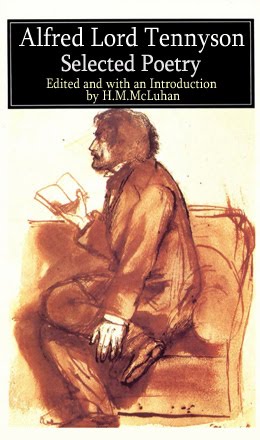






![PICNIC IN SPACE : The Great Minds of Our Time Film Series [1973]](https://blogger.googleusercontent.com/img/b/R29vZ2xl/AVvXsEjyov75DRIUBWcYLkzPYmupFy8CQ9dQ4Q798zDIN6jPNsSdBB_WuOcvPl4WjMAz10csG071oCO3BCUtIcKyHoIkCN0lCy0OxGCV_HrLXrGNKRpUiKMrqzkJh4LSc7jT_KrrqmClapSlVa8/s1600-r/PicnicInSpace.jpg)




























![more Hidden ground [re:Bride] : the "flippancy" of tone seemed just "right"](https://blogger.googleusercontent.com/img/b/R29vZ2xl/AVvXsEg-hQyF9KGGhKYc73nUGmV1bStJ4fTJVh0-TL1ZtikLZEv5ppjhB3DOhFcVuzGq-kByrwtTAWgCcE173pA3UTIPe7h6xJjsPt7lRvNym007ZsdXenMDLNimKcwtaTOqkGleoxmXOeCKtxXL/s1600-r/LEAVISLEWIS.png)
















![BABA WAWA [TODAY SHOW, Toronto City Hall 1970]](https://blogger.googleusercontent.com/img/b/R29vZ2xl/AVvXsEjTZAIFkA07K36WGk951vmZnLPU99fOdNzlvVhyphenhyphenhKZEKu2n2AW5EA1CDZGaTk0aYRXUv7IOXG39igaikoE6SWm8j7QIG96wYRE54oBXwvlaNCJzp15vdkrcqR97IMMny-8sHjM-VDotTOaY/s1600-r/babaWawa.jpg)



![enter the dragon : "typhon in america" [unpublished]](https://blogger.googleusercontent.com/img/b/R29vZ2xl/AVvXsEjdCnZdJ6JbaLc6hyUmUJo5UJ0m8WZSj_afYU9oRlHKIUgAIfcy2EPHNAptSRYEAmpOf0Xaa0B8iMgOTF302lY0Xmbyne0hvrdRyNo-t0Q-PPdzqX39uI3T5x5FppRPaQf9sSaXytrOpWVN/s1600-r/TIA.jpg)




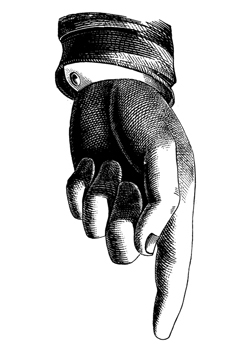






















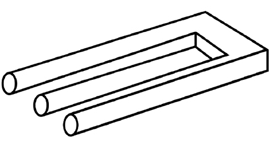









![Take Today [1972] : "the consumer becomes a producer..."](https://blogger.googleusercontent.com/img/b/R29vZ2xl/AVvXsEhA53bdVdTaXdQo1fDmrsI8oiAwF-3jampcanOq8uk3QMh8_ImkNsTiKd4-RnZY8Vbwqh1fymJiyCl1CSLcSonXHQM6XbnJYQi_Vu89gbAV4jVq73EtlbM3w6CthyphenhyphenV_pHEjE6eu_VhC489u/s1600-r/PROSUMER.jpg)








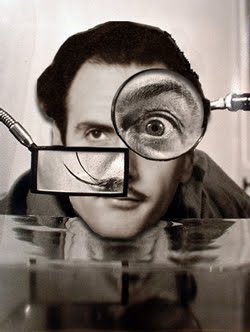















































































![" Outtragedy of poetscalds!, Acomedy of letters " [ FW 425.24]](https://blogger.googleusercontent.com/img/b/R29vZ2xl/AVvXsEhJMrJLN3oPUb25A2tjQtWZcZxA4wZB0IOvaIAvxosAUqlFc258HHvzvlnHHvKhKq7hG3epo76izY2Bu0HC3Cy-8S46Rf0Wni3L8j8jEfpT7sXK3UFlXBMtN2v2JdrmdxvWk8VWKjkhN4-9/s1600-r/preplexLP.png)











![mars[HAL]9000 : " Tomorrow is our permanent address."](https://blogger.googleusercontent.com/img/b/R29vZ2xl/AVvXsEhmblupqmUiuV3GbyayJiDRGEO63TEgwjHi-i8b0kVYDvXrKFWTCyl-e21la4QJXC4nDFDzx51Omi6fYPLJcqRHFoP6zSsL0CVZF98eMf6mxCE2WDfvMmT4q9G3X45-P0IYGDmliE0fCR3C/s1600-r/marsHAL9000_250.jpg)












































































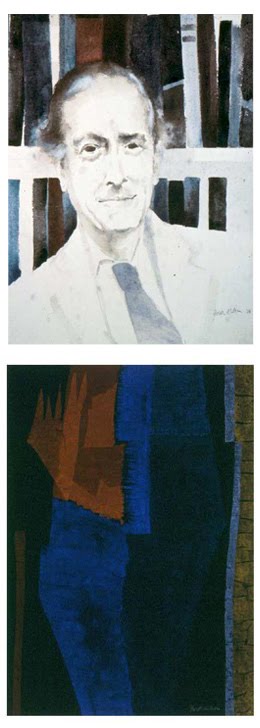






































































































































![Lucifer [from Latin] <br>meaning "light-bearer"](https://blogger.googleusercontent.com/img/b/R29vZ2xl/AVvXsEhq-2kZZOfh-Syv1Ewa0Ns2O6ZeP59pcsJp9ihhKcXCaovYZO_cKxffC5iSKOXFHr6E1jiHc6zedt1U6I95831RgpVdm3qk8-9C3y1yPyrCiQe4jgx-DsbeHnjKnw9t6Qx3ZM5TSYxiPj5H/s1600-r/lucifer.png)


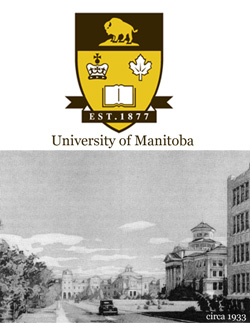















































































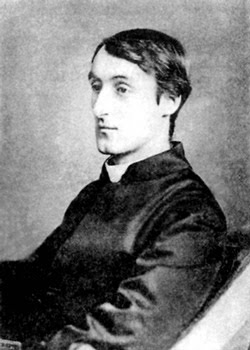


















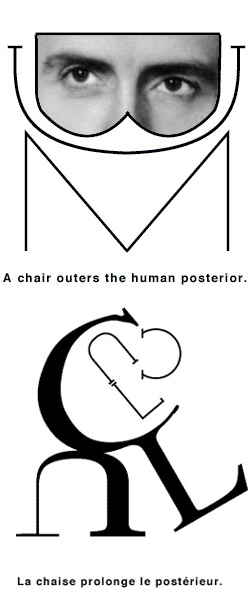






















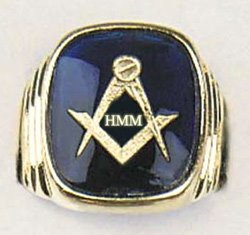















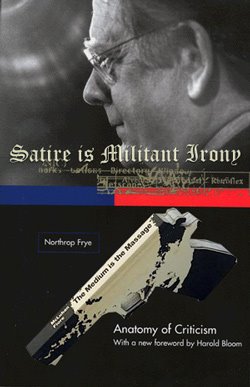























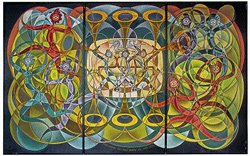










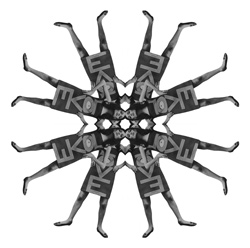





1 comment:
A Descent Into the Maelstrom
(1841)
by Edgar Allan Poe
(1809-1849)
The ways of God in Nature, as in Providence, are not as our ways; nor are the models that we frame any way commensurate to the vastness, profundity, and unsearchableness of His works, which have a depth in them greater than the well of Democritus.
Joseph Glanville.
WE had now reached the summit of the loftiest crag. For some minutes the old man seemed too much exhausted to speak.
"Not long ago," said he at length, "and I could have guided you on this route as well as the youngest of my sons; but, about three years past, there happened to me an event such as never happened before to mortal man --or at least such as no man ever survived to tell of --and the six hours of deadly terror which I then endured have broken me up body and soul. You suppose me a very old man --but I am not. It took less than a single day to change these hairs from a jetty black to white, to weaken my limbs, and to unstring my nerves, so that I tremble at the least exertion, and am frightened at a shadow. Do you know I can scarcely look over this little cliff without getting giddy?"
The "little cliff," upon whose edge he had so carelessly thrown himself down to rest that the weightier portion of his body hung over it, while he was only kept from falling by the tenure of his elbow on its extreme and slippery edge --this "little cliff" arose, a sheer unobstructed precipice of black shining rock, some fifteen or sixteen hundred feet from the world of crags beneath us. Nothing would have tempted me to within half a dozen yards of its brink. In truth so deeply was I excited by the perilous position of my companion, that I fell at full length upon the ground, clung to the shrubs around me, and dared not even glance upward at the sky --while I struggled in vain to divest myself of the idea that the very foundations of the mountain were in danger from the fury of the winds. It was long before I could reason myself into sufficient courage to sit up and look out into the distance.
"You must get over these fancies," said the guide, "for I have brought you here that you might have the best possible view of the scene of that event I mentioned --and to tell you the whole story with the spot just under your eye."
"We are now," he continued, in that particularizing manner which distinguished him --"we are now close upon the Norwegian coast --in the sixty-eighth degree of latitude --in the great province of Nordland --and in the dreary district of Lofoden. The mountain upon whose top we sit is Helseggen, the Cloudy. Now raise yourself up a little higher --hold on to the grass if you feel giddy --so --and look out beyond the belt of vapor beneath us, into the sea."
I looked dizzily, and beheld a wide expanse of ocean, whose waters wore so inky a hue as to bring at once to my mind the Nubian geographer's account of the Mare Tenebrarum. A panorama more deplorably desolate no human imagination can conceive. To the right and left, as far as the eye could reach, there lay outstretched, like ramparts of the world, lines of horridly black and beetling cliff, whose character of gloom was but the more forcibly illustrated by the surf which reared high up against it its white and ghastly crest, howling and shrieking for ever. Just opposite the promontory upon whose apex we were placed, and at a distance of some five or six miles out at sea, there was visible a small, bleak-looking island; or, more properly, its position was discernible through the wilderness of surge in which it was enveloped. About two miles nearer the land, arose another of smaller size, hideously craggy and barren, and encompassed at various intervals by a cluster of dark rocks.
The appearance of the ocean, in the space between the more distant island and the shore, had something very unusual about it. Although, at the time, so strong a gale was blowing landward that a brig in the remote offing lay to under a double-reefed trysail, and constantly plunged her whole hull out of sight, still there was here nothing like a regular swell, but only a short, quick, angry cross dashing of water in every direction --as well in the teeth of the wind as otherwise. Of foam there was little except in the immediate vicinity of the rocks.
"The island in the distance," resumed the old man, "is called by the Norwegians Vurrgh. The one midway is Moskoe. That a mile to the northward is Ambaaren. Yonder are Iflesen, Hoeyholm, Kieldholm, Suarven, and Buckholm. Farther off --between Moskoe and Vurrgh --are Otterholm, Flimen, Sandflesen, and Skarholm. These are the true names of the places --but why it has been thought necessary to name them at all, is more than either you or I can understand. Do you hear any thing? Do you see any change in the water?"
We had now been about ten minutes upon the top of Helseggen, to which we had ascended from the interior of Lofoden, so that we had caught no glimpse of the sea until it had burst upon us from the summit. As the old man spoke, I became aware of a loud and gradually increasing sound, like the moaning of a vast herd of buffaloes upon an American prairie; and at the same moment I perceived that what seamen term the chopping character of the ocean beneath us, was rapidly changing into a current which set to the eastward. Even while I gazed, this current acquired a monstrous velocity. Each moment added to its speed --to its headlong impetuosity. In five minutes the whole sea, as far as Vurrgh, was lashed into ungovernable fury; but it was between Moskoe and the coast that the main uproar held its sway. Here the vast bed of the waters, seamed and scarred into a thousand conflicting channels, burst suddenly into phrensied convulsion --heaving, boiling, hissing --gyrating in gigantic and innumerable vortices, and all whirling and plunging on to the eastward with a rapidity which water never elsewhere assumes except in precipitous descents.
In a few minutes more, there came over the scene another radical alteration. The general surface grew somewhat more smooth, and the whirlpools, one by one, disappeared, while prodigious streaks of foam became apparent where none had been seen before. These streaks, at length, spreading out to a great distance, and entering into combination, took unto themselves the gyratory motion of the subsided vortices, and seemed to form the germ of another more vast. Suddenly --very suddenly --this assumed a distinct and definite existence, in a circle of more than half a mile in diameter. The edge of the whirl was represented by a broad belt of gleaming spray; but no particle of this slipped into the mouth of the terrific funnel, whose interior, as far as the eye could fathom it, was a smooth, shining, and jet-black wall of water, inclined to the horizon at an angle of some forty-five degrees, speeding dizzily round and round with a swaying and sweltering motion, and sending forth to the winds an appalling voice, half shriek, half roar, such as not even the mighty cataract of Niagara ever lifts up in its agony to Heaven.
The mountain trembled to its very base, and the rock rocked. I threw myself upon my face, and clung to the scant herbage in an excess of nervous agitation.
"This," said I at length, to the old man --"this can be nothing else than the great whirlpool of the Maelstrom."
"So it is sometimes termed," said he. "We Norwegians call it the Moskoe-strom, from the island of Moskoe in the midway."
The ordinary accounts of this vortex had by no means prepared me for what I saw. That of Jonas Ramus, which is perhaps the most circumstantial of any, cannot impart the faintest conception either of the magnificence, or of the horror of the scene --or of the wild bewildering sense of the novel which confounds the beholder. I am not sure from what point of view the writer in question surveyed it, nor at what time; but it could neither have been from the summit of Helseggen, nor during a storm. There are some passages of his description, nevertheless, which may be quoted for their details, although their effect is exceedingly feeble in conveying an impression of the spectacle.
"Between Lofoden and Moskoe," he says, "the depth of the water is between thirty-six and forty fathoms; but on the other side, toward Ver (Vurrgh) this depth decreases so as not to afford a convenient passage for a vessel, without the risk of splitting on the rocks, which happens even in the calmest weather. When it is flood, the stream runs up the country between Lofoden and Moskoe with a boisterous rapidity; but the roar of its impetuous ebb to the sea is scarce equalled by the loudest and most dreadful cataracts; the noise being heard several leagues off, and the vortices or pits are of such an extent and depth, that if a ship comes within its attraction, it is inevitably absorbed and carried down to the bottom, and there beat to pieces against the rocks; and when the water relaxes, the fragments thereof are thrown up again. But these intervals of tranquillity are only at the turn of the ebb and flood, and in calm weather, and last but a quarter of an hour, its violence gradually returning. When the stream is most boisterous, and its fury heightened by a storm, it is dangerous to come within a Norway mile of it. Boats, yachts, and ships have been carried away by not guarding against it before they were within its reach. It likewise happens frequently, that whales come too near the stream, and are overpowered by its violence; and then it is impossible to describe their howlings and bellowings in their fruitless struggles to disengage themselves. A bear once, attempting to swim from Lofoden to Moskoe, was caught by the stream and borne down, while he roared terribly, so as to be heard on shore. Large stocks of firs and pine trees, after being absorbed by the current, rise again broken and torn to such a degree as if bristles grew upon them. This plainly shows the bottom to consist of craggy rocks, among which they are whirled to and fro. This stream is regulated by the flux and reflux of the sea --it being constantly high and low water every six hours. In the year 1645, early in the morning of Sexagesima Sunday, it raged with such noise and impetuosity that the very stones of the houses on the coast fell to the ground."
In regard to the depth of the water, I could not see how this could have been ascertained at all in the immediate vicinity of the vortex. The "forty fathoms" must have reference only to portions of the channel close upon the shore either of Moskoe or Lofoden. The depth in the centre of the Moskoe-strom must be immeasurably greater; and no better proof of this fact is necessary than can be obtained from even the sidelong glance into the abyss of the whirl which may be had from the highest crag of Helseggen. Looking down from this pinnacle upon the howling Phlegethon below, I could not help smiling at the simplicity with which the honest Jonas Ramus records, as a matter difficult of belief, the anecdotes of the whales and the bears; for it appeared to me, in fact, a self-evident thing, that the largest ships of the line in existence, coming within the influence of that deadly attraction, could resist it as little as a feather the hurricane, and must disappear bodily and at once.
The attempts to account for the phenomenon --some of which, I remember, seemed to me sufficiently plausible in perusal --now wore a very different and unsatisfactory aspect. The idea generally received is that this, as well as three smaller vortices among the Feroe islands, "have no other cause than the collision of waves rising and falling, at flux and reflux, against a ridge of rocks and shelves, which confines the water so that it precipitates itself like a cataract; and thus the higher the flood rises, the deeper must the fall be, and the natural result of all is a whirlpool or vortex, the prodigious suction of which is sufficiently known by lesser experiments." --These are the words of the Encyclopaedia Britannica. Kircher and others imagine that in the centre of the channel of the Maelstrom is an abyss penetrating the globe, and issuing in some very remote part --the Gulf of Bothnia being somewhat decidedly named in one instance. This opinion, idle in itself, was the one to which, as I gazed, my imagination most readily assented; and, mentioning it to the guide, I was rather surprised to hear him say that, although it was the view almost universally entertained of the subject by the Norwegians, it nevertheless was not his own. As to the former notion he confessed his inability to comprehend it; and here I agreed with him --for, however conclusive on paper, it becomes altogether unintelligible, and even absurd, amid the thunder of the abyss.
"You have had a good look at the whirl now," said the old man, "and if you will creep round this crag, so as to get in its lee, and deaden the roar of the water, I will tell you a story that will convince you I ought to know something of the Moskoe-strom."
I placed myself as desired, and he proceeded.
"Myself and my two brothers once owned a schooner-rigged smack of about seventy tons burthen, with which we were in the habit of fishing among the islands beyond Moskoe, nearly to Vurrgh. In all violent eddies at sea there is good fishing, at proper opportunities, if one has only the courage to attempt it; but among the whole of the Lofoden coastmen, we three were the only ones who made a regular business of going out to the islands, as I tell you. The usual grounds are a great way lower down to the southward. There fish can be got at all hours, without much risk, and therefore these places are preferred. The choice spots over here among the rocks, however, not only yield the finest variety, but in far greater abundance; so that we often got in a single day, what the more timid of the craft could not scrape together in a week. In fact, we made it a matter of desperate speculation --the risk of life standing instead of labor, and courage answering for capital.
"We kept the smack in a cove about five miles higher up the coast than this; and it was our practice, in fine weather, to take advantage of the fifteen minutes' slack to push across the main channel of the Moskoe-strom, far above the pool, and then drop down upon anchorage somewhere near Otterholm, or Sandflesen, where the eddies are not so violent as elsewhere. Here we used to remain until nearly time for slackwater again, when we weighed and made for home. We never set out upon this expedition without a steady side wind for going and coming --one that we felt sure would not fall us before our return --and we seldom made a mis-calculation upon this point. Twice, during six years, we were forced to stay all night at anchor on account of a dead calm, which is a rare thing indeed just about here; and once we had to remain on the grounds nearly a week, starving to death, owing to a gale which blew up shortly after our arrival, and made the channel too boisterous to be thought of. Upon this occasion we should have been driven out to sea in spite of everything, (for the whirlpools threw us round and round so violently that, at length, we fouled our anchor and dragged it) if it had not been that we drifted into one of the innumerable cross currents-here to-day and gone to-morrow --which drove us under the lee of Flimen, where, by good luck, we brought up.
"I could not tell you the twentieth part of the difficulties we encountered 'on the ground' --it is a bad spot to be in, even in good weather --but we made shift always to run the gauntlet of the Moskoe-strom itself without accident; although at times my heart has been in my mouth when we happened to be a minute or so behind or before the slack. The wind sometimes was not as strong as we thought it at starting, and then we made rather less way than we could wish, while the current rendered the smack unmanageable. My eldest brother had a son eighteen years old, and I had two stout boys of my own. These would have been of great assistance at such times, in using the sweeps, as well as afterward in fishing --but, somehow, although we ran the risk ourselves, we had not the heart to let the young ones get into the danger --for, after all said and done, it was a horrible danger, and that is the truth.
"It is now within a few days of three years since what I am going to tell you occurred. It was on the tenth of July, 18--, a day which the people of this part of the world will never forget --for it was one in which blew the most terrible hurricane that ever came out of the heavens. And yet all the morning, and indeed until late in the afternoon, there was a gentle and steady breeze from the south-west, while the sun shone brightly, so that the oldest seaman among us could not have foreseen what was to follow.
"The three of us --my two brothers and myself --had crossed over to the islands about two o'clock P. M., and soon nearly loaded the smack with fine fish, which, we all remarked, were more plenty that day than we had ever known them. It was just seven, by my watch, when we weighed and started for home, so as to make the worst of the Strom at slack water, which we knew would be at eight.
"We set out with a fresh wind on our starboard quarter, and for some time spanked along at a great rate, never dreaming of danger, for indeed we saw not the slightest reason to apprehend it. All at once we were taken aback by a breeze from over Helseggen. This was most unusual --something that had never happened to us before --and I began to feel a little uneasy, without exactly knowing why. We put the boat on the wind, but could make no headway at all for the eddies, and I was upon the point of proposing to return to the anchorage, when, looking astern, we saw the whole horizon covered with a singular copper-colored cloud that rose with the most amazing velocity.
"In the meantime the breeze that had headed us off fell away, and we were dead becalmed, drifting about in every direction. This state of things, however, did not last long enough to give us time to think about it. In less than a minute the storm was upon us --in less than two the sky was entirely overcast --and what with this and the driving spray, it became suddenly so dark that we could not see each other in the smack.
"Such a hurricane as then blew it is folly to attempt describing. The oldest seaman in Norway never experienced any thing like it. We had let our sails go by the run before it cleverly took us; but, at the first puff, both our masts went by the board if they had been sawed off --the mainmast taking with it my as I youngest brother, who had lashed himself to it for safety.
"Our boat was the lightest feather of a thing that ever sat upon water. It had a complete flush deck, with only a small hatch near the bow, and this hatch it had always been our custom to batten down when about to cross the Strom, by way of precaution against the chopping seas. But for this circumstance we should have foundered at once --for we lay entirely buried for some moments. How my elder brother escaped destruction I cannot say, for I never had an opportunity of ascertaining. For my part, as soon as I had let the foresail run, I threw myself flat on deck, with my feet against the narrow gunwale of the bow, and with my hands grasping a ring-bolt near the foot of the foremast. It was mere instinct that prompted me to do this --which was undoubtedly the very best thing I could have done --for I was too much flurried to think.
"For some moments we were completely deluged, as I say, and all this time I held my breath, and clung to the bolt. When I could stand it no longer I raised myself upon my knees, still keeping hold with my hands, and thus got my head clear. Presently our little boat gave herself a shake, just as a dog does in coming out of the water, and thus rid herself, in some measure, of the seas. I was now trying to get the better of the stupor that had come over me, and to collect my senses so as to see what was to be done, when I felt somebody grasp my arm. It was my elder brother, and my heart leaped for joy, for I had made sure that he was overboard --but the next moment all this joy was turned into horror --for he put his mouth close to my ear, and screamed out the word 'Moskoe-strom!'
"No one ever will know what my feelings were at that moment. I shook from head to foot as if I had had the most violent fit of the ague. I knew what he meant by that one word well enough --I knew what he wished to make me understand. With the wind that now drove us on, we were bound for the whirl of the Strom, and nothing could save us!
"You perceive that in crossing the Strom channel, we always went a long way up above the whirl, even in the calmest weather, and then had to wait and watch carefully for the slack --but now we were driving right upon the pool itself, and in such a hurricane as this! 'To be sure,' I thought, 'we shall get there just about the slack --there is some little hope in that' --but in the next moment I cursed myself for being so great a fool as to dream of hope at all. I knew very well that we were doomed, had we been ten times a ninety-gun ship.
"By this time the first fury of the tempest had spent itself, or perhaps we did not feel it so much, as we scudded before it, but at all events the seas, which at first had been kept down by the wind, and lay flat and frothing, now got up into absolute mountains. A singular change, too, had come over the heavens. Around in every direction it was still as black as pitch, but nearly overhead there burst out, all at once, a circular rift of clear sky --as clear as I ever saw --and of a deep bright blue --and through it there blazed forth the full moon with a lustre that I never before knew her to wear. She lit up every thing about us with the greatest distinctness --but, oh God, what a scene it was to light up!
"I now made one or two attempts to speak to my brother --but in some manner which I could not understand, the din had so increased that I could not make him hear a single word, although I screamed at the top of my voice in his ear. Presently he shook his head, looking as pale as death, and held up one of his fingers, as to say 'listen!'
"At first I could not make out what he meant --but soon a hideous thought flashed upon me. I dragged my watch from its fob. It was not going. I glanced as its face by the moonlight, and then burst into tears as I flung it far away into the ocean. It had run down at seven o'clock! We were behind the time of the slack, and the whirl of the Strom was in full fury!
"When a boat is well built, properly trimmed, and not deep laden, the waves in a strong gale, when she is going large, seem always to slip from beneath her --which appears very strange to a landsman --and this is what is called riding, in sea phrase.
"Well, so far we had ridden the swells very cleverly; but presently a gigantic sea happened to take us right under the counter, and bore us with it as it rose --up --up --as if into the sky. I would not have believed that any wave could rise so high. And then down we came with a sweep, a slide, and a plunge, that made me feel sick and dizzy, as if I was falling from some lofty mountain-top in a dream. But while we were up I had thrown a quick glance around --and that one glance was all sufficient. I saw our exact position in an instant. The Moskoe-strom whirlpool was about a quarter of a mile dead ahead --but no more like the every-day Moskoe-strom, than the whirl as you now see it, is like a mill-race. If I had not known where we were, and what we had to expect, I should not have recognised the place at all. As it was, I involuntarily closed my eyes in horror. The lids clenched themselves together as if in a spasm.
"It could not have been more than two minutes afterwards until we suddenly felt the waves subside, and were enveloped in foam. The boat made a sharp half turn to larboard, and then shot off in its new direction like a thunderbolt. At the same moment the roaring noise of the water was completely drowned in a kind of shrill shriek --such a sound as you might imagine given out by the water-pipes of many thousand steam-vessels, letting off their steam all together. We were now in the belt of surf that always surrounds the whirl; and I thought, of course, that another moment would plunge us into the abyss --down which we could only see indistinctly on account of the amazing velocity with which we were borne along. The boat did not seem to sink into the water at all, but to skim like an air-bubble upon the surface of the surge. Her starboard side was next the whirl, and on the larboard arose the world of ocean we had left. It stood like a huge writhing wall between us and the horizon.
"It may appear strange, but now, when we were in the very jaws of the gulf, I felt more composed than when we were only approaching it. Having made up my mind to hope no more, I got rid of a great deal of that terror which unmanned me at first. I suppose it was despair that strung my nerves.
"It may look like boasting --but what I tell you is truth --I began to reflect how magnificent a thing it was to die in such a manner, and how foolish it was in me to think of so paltry a consideration as my own individual life, in view of so wonderful a manifestation of God's power. I do believe that I blushed with shame when this idea crossed my mind. After a little while I became possessed with the keenest curiosity about the whirl itself. I positively felt a wish to explore its depths, even at the sacrifice I was going to make; and my principal grief was that I should never be able to tell my old companions on shore about the mysteries I should see. These, no doubt, were singular fancies to occupy a man's mind in such extremity --and I have often thought since, that the revolutions of the boat around the pool might have rendered me a little light-headed.
"There was another circumstance which tended to restore my self-possession; and this was the cessation of the wind, which could not reach us in our present situation --for, as you saw yourself, the belt of surf is considerably lower than the general bed of the ocean, and this latter now towered above us, a high, black, mountainous ridge. If you have never been at sea in a heavy gale, you can form no idea of the confusion of mind occasioned by the wind and the spray together. They blind, deafen and strangle you, and take away all power of action or reflection. But we were now, in a great measure, rid of these annoyances --just as death-condemned felons in prison are allowed petty indulgences, forbidden them while their doom is yet uncertain.
"How often we made the circuit of the belt it is impossible to say. We careered round and round for perhaps an hour, flying rather than floating, getting gradually more and more into the middle of the surge, and then nearer and nearer to its horrible inner edge. All this time I had never let go of the ring-bolt. My brother was at the stern, holding on to a large empty water-cask which had been securely lashed under the coop of the counter, and was the only thing on deck that had not been swept overboard when the gale first took us. As we approached the brink of the pit he let go his hold upon this, and made for the ring, from which, in the agony of his terror, he endeavored to force my hands, as it was not large enough to afford us both a secure grasp. I never felt deeper grief than when I saw him attempt this act --although I knew he was a madman when he did it --a raving maniac through sheer fright. I did not care, however, to contest the point with him. I thought it could make no difference whether either of us held on at all; so I let him have the bolt, and went astern to the cask. This there was no great difficulty in doing; for the smack flew round steadily enough, and upon an even keel --only swaying to and fro, with the immense sweeps and swelters of the whirl. Scarcely had I secured myself in my new position, when we gave a wild lurch to starboard, and rushed headlong into the abyss. I muttered a hurried prayer to God, and thought all was over.
"As I felt the sickening sweep of the descent, I had instinctively tightened my hold upon the barrel, and closed my eyes. For some seconds I dared not open them --while I expected instant destruction, and wondered that I was not already in my death-struggles with the water. But moment after moment elapsed. I still lived. The sense of falling had ceased; and the motion of the vessel seemed much as it had been before while in the belt of foam, with the exception that she now lay more along. I took courage and looked once again upon the scene.
"Never shall I forget the sensations of awe, horror, and admiration with which I gazed about me. The boat appeared to be hanging, as if by magic, midway down, upon the interior surface of a funnel vast in circumference, prodigious in depth, and whose perfectly smooth sides might have been mistaken for ebony, but for the bewildering rapidity with which they spun around, and for the gleaming and ghastly radiance they shot forth, as the rays of the full moon, from that circular rift amid the clouds which I have already described, streamed in a flood of golden glory along the black walls, and far away down into the inmost recesses of the abyss.
"At first I was too much confused to observe anything accurately. The general burst of terrific grandeur was all that I beheld. When I recovered myself a little, however, my gaze fell instinctively downward. In this direction I was able to obtain an unobstructed view, from the manner in which the smack hung on the inclined surface of the pool. She was quite upon an even keel --that is to say, her deck lay in a plane parallel with that of the water --but this latter sloped at an angle of more than forty-five degrees, so that we seemed to be lying upon our beam-ends. I could not help observing, nevertheless, that I had scarcely more difficulty in maintaining my hold and footing in this situation, than if we had been upon a dead level; and this, I suppose, was owing to the speed at which we revolved.
"The rays of the moon seemed to search the very bottom of the profound gulf; but still I could make out nothing distinctly, on account of a thick mist in which everything there was enveloped, and over which there hung a magnificent rainbow, like that narrow and tottering bridge which Mussulmen say is the only pathway between Time and Eternity. This mist, or spray, was no doubt occasioned by the clashing of the great walls of the funnel, as they all met together at the bottom --but the yell that went up to the Heavens from out of that mist, I dare not attempt to describe.
"Our first slide into the abyss itself, from the belt of foam above, had carried us to a great distance down the slope; but our farther descent was by no means proportionate. Round and round we swept --not with any uniform movement --but in dizzying swings and jerks, that sent us sometimes only a few hundred feet --sometimes nearly the complete circuit of the whirl. Our progress downward, at each revolution, was slow, but very perceptible.
"Looking about me upon the wide waste of liquid ebony on which we were thus borne, I perceived that our boat was not the only object in the embrace of the whirl. Both above and below us were visible fragments of vessels, large masses of building timber and trunks of trees, with many smaller articles, such as pieces of house furniture, broken boxes, barrels and staves. I have already described the unnatural curiosity which had taken the place of my original terrors. It appeared to grow upon me as I drew nearer and nearer to my dreadful doom. I now began to watch, with a strange interest, the numerous things that floated in our company. I must have been delirious --for I even sought amusement in speculating upon the relative velocities of their several descents toward the foam below. 'This fir tree,' I found myself at one time saying, 'will certainly be the next thing that takes the awful plunge and disappears,' --and then I was disappointed to find that the wreck of a Dutch merchant ship overtook it and went down before. At length, after making several guesses of this nature, and being deceived in all --this fact --the fact of my invariable miscalculation, set me upon a train of reflection that made my limbs again tremble, and my heart beat heavily once more.
"It was not a new terror that thus affected me, but the dawn of a more exciting hope. This hope arose partly from memory, and partly from present observation. I called to mind the great variety of buoyant matter that strewed the coast of Lofoden, having been absorbed and then thrown forth by the Moskoe-strom. By far the greater number of the articles were shattered in the most extraordinary way --so chafed and roughened as to have the appearance of being stuck full of splinters --but then I distinctly recollected that there were some of them which were not disfigured at all. Now I could not account for this difference except by supposing that the roughened fragments were the only ones which had been completely absorbed --that the others had entered the whirl at so late a period of the tide, or, from some reason, had descended so slowly after entering, that they did not reach the bottom before the turn of the flood came, or of the ebb, as the case might be. I conceived it possible, in either instance, that they might thus be whirled up again to the level of the ocean, without undergoing the fate of those which had been drawn in more early or absorbed more rapidly. I made, also, three important observations. The first was, that as a general rule, the larger the bodies were, the more rapid their descent; --the second, that, between two masses of equal extent, the one spherical, and the other of any other shape, the superiority in speed of descent was with the sphere; --the third, that, between two masses of equal size, the one cylindrical, and the other of any other shape, the cylinder was absorbed the more slowly.
Since my escape, I have had several conversations on this subject with an old school-master of the district; and it was from him that I learned the use of the words 'cylinder' and 'sphere.' He explained to me --although I have forgotten the explanation --how what I observed was, in fact, the natural consequence of the forms of the floating fragments --and showed me how it happened that a cylinder, swimming in a vortex, offered more resistance to its suction, and was drawn in with greater difficulty than an equally bulky body, of any form whatever.*
*See Archimedes, "De Incidentibus in Fluido." --lib.2.
"There was one startling circumstance which went a great way in enforcing these observations, and rendering me anxious to turn them to account, and this was that, at every revolution, we passed something like a barrel, or else the broken yard or the mast of a vessel, while many of these things, which had been on our level when I first opened my eyes upon the wonders of the whirlpool, were now high up above us, and seemed to have moved but little from their original station.
"I no longer hesitated what to do. I resolved to lash myself securely to the water cask upon which I now held, to cut it loose from the counter, and to throw myself with it into the water. I attracted my brother's attention by signs, pointed to the floating barrels that came near us, and did everything in my power to make him understand what I was about to do. I thought at length that he comprehended my design --but, whether this was the case or not, he shook his head despairingly, and refused to move from his station by the ring-bolt. It was impossible to force him; the emergency admitted no delay; and so, with a bitter struggle, I resigned him to his fate, fastened myself to the cask by means of the lashings which secured it to the counter, and precipitated myself with it into the sea, without another moment's hesitation.
"The result was precisely what I had hoped it might be. As it is myself who now tell you this tale --as you see that I did escape --and as you are already in possession of the mode in which this escape was effected, and must therefore anticipate all that I have farther to say --I will bring my story quickly to conclusion. It might have been an hour, or thereabout, after my quitting the smack, when, having descended to a vast distance beneath me, it made three or four wild gyrations in rapid succession, and, bearing my loved brother with it, plunged headlong, at once and forever, into the chaos of foam below. The barrel to which I was attached sunk very little farther than half the distance between the bottom of the gulf and the spot at which I leaped overboard, before a great change took place in the character of the whirlpool. The slope of the sides of the vast funnel became momently less and less steep. The gyrations of the whirl grew, gradually, less and less violent. By degrees, the froth and the rainbow disappeared, and the bottom of the gulf seemed slowly to uprise. The sky was clear, the winds had gone down, and the full moon was setting radiantly in the west, when I found myself on the surface of the ocean, in full view of the shores of Lofoden, and above the spot where the pool of the Moskoe-strom had been. It was the hour of the slack --but the sea still heaved in mountainous waves from the effects of the hurricane. I was borne violently into the channel of the Strom and in a few minutes, was hurried down the coast into the 'grounds' of the fishermen. A boat picked me up --exhausted from fatigue --and (now that the danger was removed) speechless from the memory of its horror. Those who drew me on board were my old mates and dally companions --but they knew me no more than they would have known a traveller from the spirit-land. My hair, which had been raven-black the day before, was as white as you see it now. They say too that the whole expression of my countenance had changed. I told them my story --they did not believe it. I now tell it to you --and I can scarcely expect you to put more faith in it than did the merry fishermen of Lofoden.
THE END
Post a Comment